A house made of straw? VINES takes unique approach to building new Binghamton office
VINES is growing in Binghamton, and setting a new industry standard for green construction in the process.
VINES — Volunteers Improving Neighborhood Environments, Inc. — set the first straw bale at 157 Susquehanna St. Thursday, marking a ceremonial start to construction of its new home in the center of Binghamton.
The 4,000-square-foot structure isn’t being built with brick and mortar, but with bales of straw. When completed, it will mark the first commercial straw bale building in the Northeast and Binghamton’s first net zero energy building.
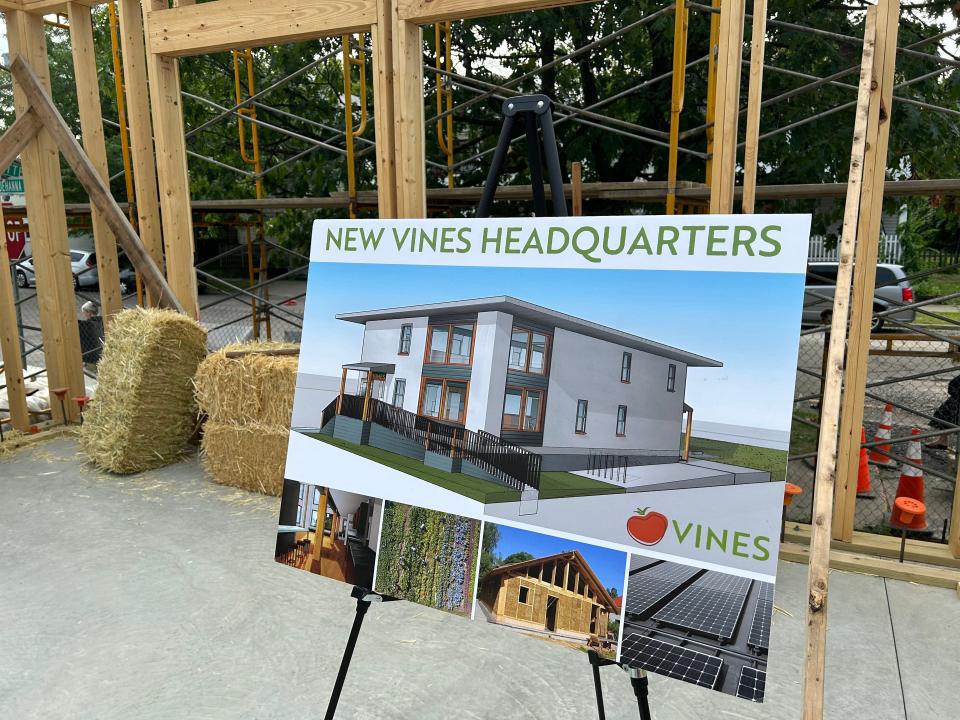
Amelia LoDolce, VINES Executive Director, said the group is hoping the sustainable, green manufacturing technology inspires copycats across the Southern Tier.
“We're thrilled to be installing the first straw bale in our office building which will serve as a model for green building in our region,” said LoDolce. “This project is the result of years of hard work and dedication from our staff and volunteers, and we're excited to see it come to fruition.”
Why straw was the right fit for VINES
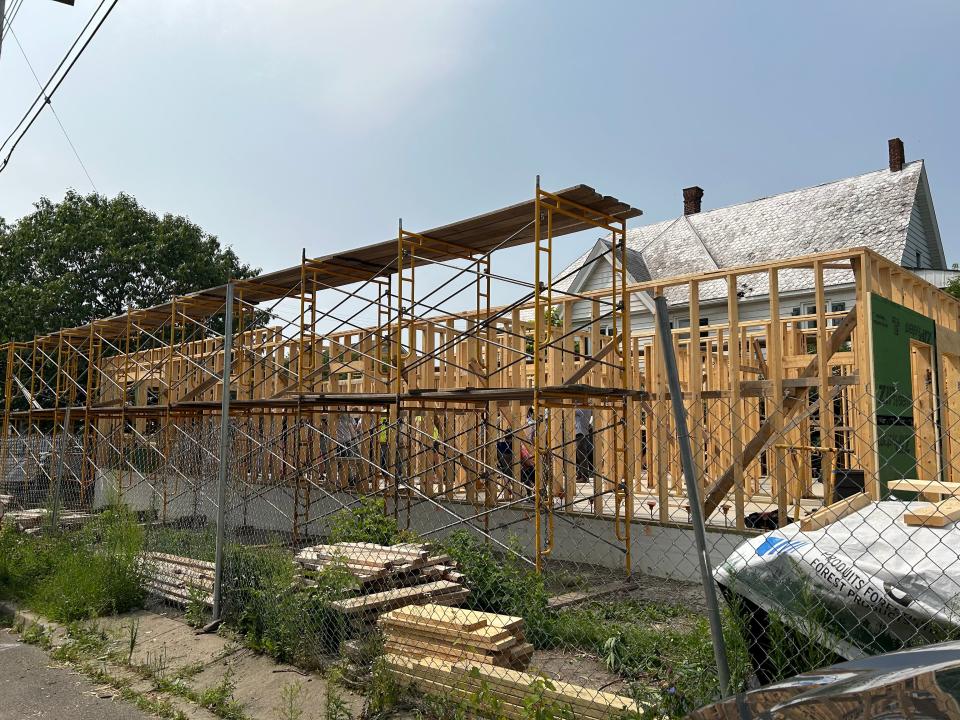
VINES is a non-profit founded in 2007 to create and sustain community gardens and other food access programs in the Binghamton area. A “green” building aligned with its mission. Straw is a renewable building material that utilizes the stalk of grains like wheat, rye, hemp or rice. Straw bales are packed together into sturdy blocks and assembled like Legos.
They are later covered with a plaster skin, followed by a finish. The straw bales at the VINES building will complement the wood framing. Straw bale buildings are energy efficient, providing relief from extreme winter and summer temperatures. VINES said the insulation will be 2-3 times more effective than traditional construction.
The building will also feature solar panels, air source heat pumps, and energy-efficient design elements to reduce its carbon footprint and produce as much energy as it consumes.
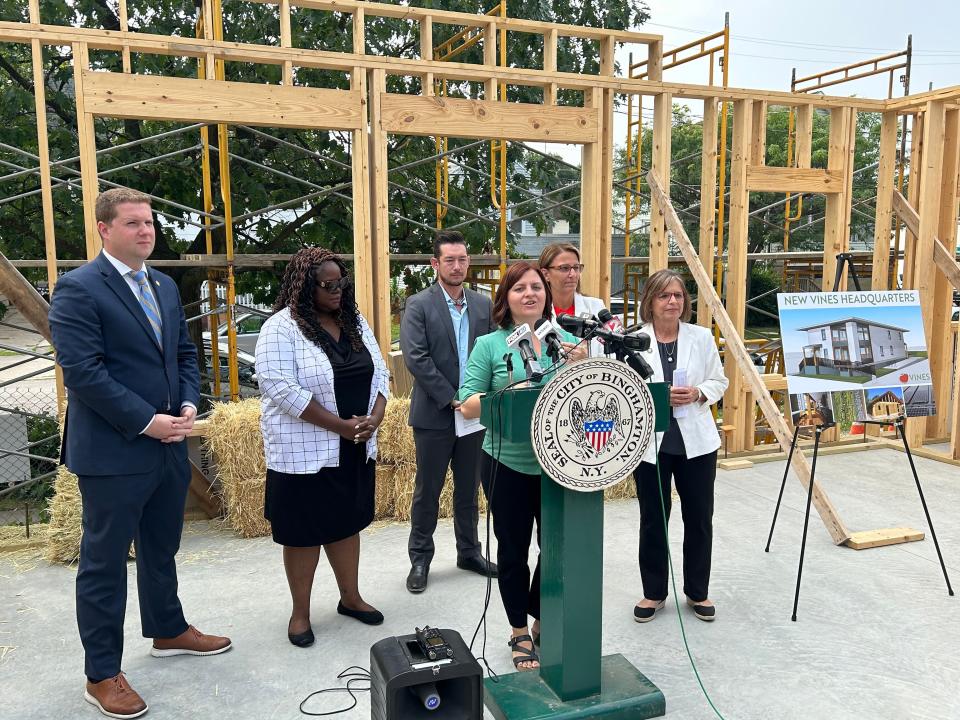
Doreen Harris, President and CEO of NYSERDA, said the VINES Net Zero Energy office building will “serve as a model for clean and resilient design with the incorporation of energy efficiency and electrification features.”
“As the first commercial straw bale building in the Northeast, VINES embodies New York’s innovative spirit — while advancing building decarbonization in support of the State’s nation-leading Climate Act goal of reducing emissions 85% by 2050,” said Harris.
The impact of the new building
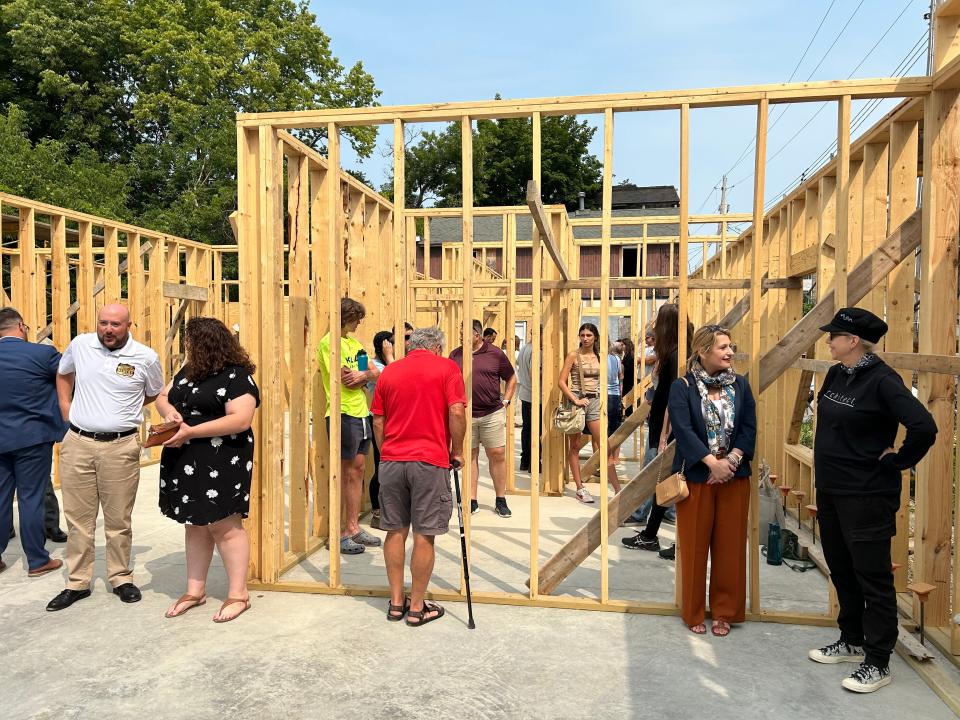
The new building will allow VINES to expand its services with new office space and serve as a hub for community events and gatherings. It is strategically located; VINES’ first community garden was built just around the corner (today it counts nearly two dozen), and its Urban Farm is a block away. The gardens produce thousands of pounds of fresh produce every year.
VINES said that proximity and its desire to continue investing in the Susquehanna neighborhood were crucial factors in selecting the site for its new headquarters. Binghamton Mayor Jared Kraham said the space will be an asset for the city’s urban core.
“Not only will VINES’ new headquarters transform a corner of Susquehanna Street downtown, it will also shine a spotlight on Binghamton’s commitment to sustainable development and green solutions,” said Kraham. “The City is proud to have been an early partner on this project.”
The building is expected to be completed by June 2024.
New business: Johnson City's House of Sport grand opening: What to know about special guests, prizes
How VINES secured funding for the new building
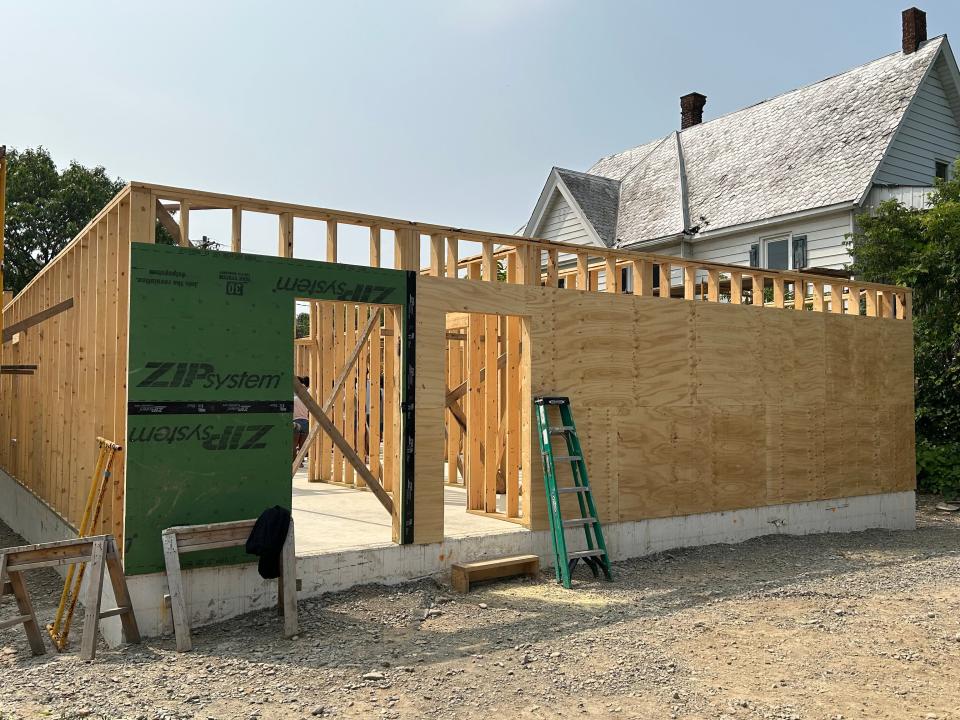
The project is the culmination of over $1.4 million in grants and donations. The City of Binghamton kicked in $300,000 in 2022 after VINES acquired two vacant lots for the project in 2020.
Other six-figure contributions came from NYSERDA ($400,000), a NYS Assembly grant ($250,000), Empire State Development ($200,000), and Green Mountain Energy Sun Club ($169,000).
“As Chair of the Assembly Committee on Agriculture, I often point to VINES as a model program, one that promotes urban agriculture, food access, and youth development,” said Assemblywoman Donna Lupardo (D-Endwell). “In true VINES fashion, their new headquarters is a pioneering initiative in terms of sustainability, serving as the first Net Zero Energy building in Binghamton.”
VINES is still seeking donations to support the project. To get involved, visit vinesgardens.org or mail VINES, PO Box 3104, Binghamton, NY 13902.
This article originally appeared on The Evening Tribune: How VINES is using straw bales to build new Binghamton office

